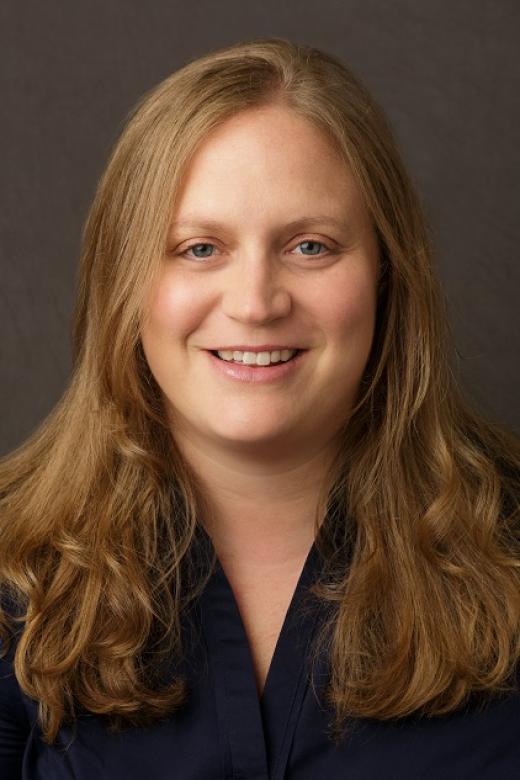October 2017

Biography:
Dr. Erin Heinzen obtained a Doctorate in Pharmacy and a PhD in Pharmaceutical Sciences from the University of North Carolina in Chapel Hill. She did a postdoctoral fellowship with CiT in the lab of Richard Mailman studying dopamine pharmacology. To diversify her research training, she did another postdoctoral fellowship at Duke in David Goldstein’s group focusing pharmacogenetics and human disease genetics. From there, Dr. Heinzen moved to Columbia University and now serves as the Deputy Director of the Institute for Genomic Medicine and heads a research group investigating the role of germline and somatic mutations in epilepsy and other neurological disorders.
What is your story? How did you get interested in pharmacy/toxicology?
I had known as early as high school that I was interested in pharmacology and decided then that I wanted to go to pharmacy school to become a dispensing pharmacist. Within the first few classes of the PharmD curriculum at UNC School of Pharmacy, I was totally enthralled with pharmacology, pharmacokinetics, and the incredible ways that people were trying to deliver medication in a targeted way to tumors. I knew at that point I wanted to do more than dispensing medications. I went on to finish the PharmD degree and then did a PhD in Pharmaceutical Sciences with Gary Pollack studying the role of nitric oxide in morphine tolerance development. My research focused on pharmacodynamic and pharmacokinetic modeling of processes related to the development of morphine tolerance in animals. Leveraging information derived from these models I then hypothesized and tested mechanisms of how tolerance to morphine develops in vivo.
What do you do now?
I am an epilepsy geneticist. After I finished grad school, I did a short postdoctoral fellowship in Richard Mailman’s group doing research similar to what I did in graduate school. I distinctly recall hearing in a lecture or seminar, perhaps it was Dr. Holbrook, about how important genetics was becoming and from that advice I thought it would be wise to get some formal training in the field. I went to David Goldstein’s group to characterize the molecular effects of genetic risk alleles in epilepsy, and to get more training in genetics. During that postdoc, my work evolved to direct studies of the genetic basis of neurological diseases. While this was very different area of work from my training, I saw neurological disease genetics as an incredible opportunity to be part of the work to find specific pharmacologic targets in neurological disease. Having never had any formal training in genetics I had to learn genetic from the ground up, but it has been well worth the effort. I am now an assistant professor at Columbia University now studying somatic, tissue-specific mutations in epilepsy patients.
What do you like most about your job?
Genetics is an incredibly interesting and dynamic field. Researchers are finding new disease genes at an unprecedented rate and this is informing us about novel mechanisms of pathophysiology and illuminating novel avenues for drug therapy. As a practicing dispensing pharmacist (in my spare time), I am excited at the prospects this work will eventually offer for pharmacotherapy and patient care.
Where do you see the future of your field of research?
Over the next 5 years, the field of genetics will have a solid knowledge of the types of genetic variants that cause disease and we will be beginning to see these discoveries being translated into better understanding of pathophysiology and the development of novel approaches to pharmacotherapy.
Apart from the degree, what was the most valuable skill/lesson you gained from your time at UNC?
In both graduate school and during my postdoctoral training, I obtained a very strong foundation in pharmacology and drug disposition. Being a geneticist with a strong foundation in pharmacology and pharmacokinetics is a unique skill set that has offered a perspective that has been very valuable in my career development.
Advice for current students/postdocs?
Genetics is a part of almost all biomedical/biological research. Given this, I would recommend getting a good, working knowledge of genetics even if it is not a primary focus of your research.
What do you enjoy doing in your free time?
I am pretty busy! But when I’m not writing grants, working in the lab, or dispensing medications in the pharmacy, I enjoy spending time with my kids!